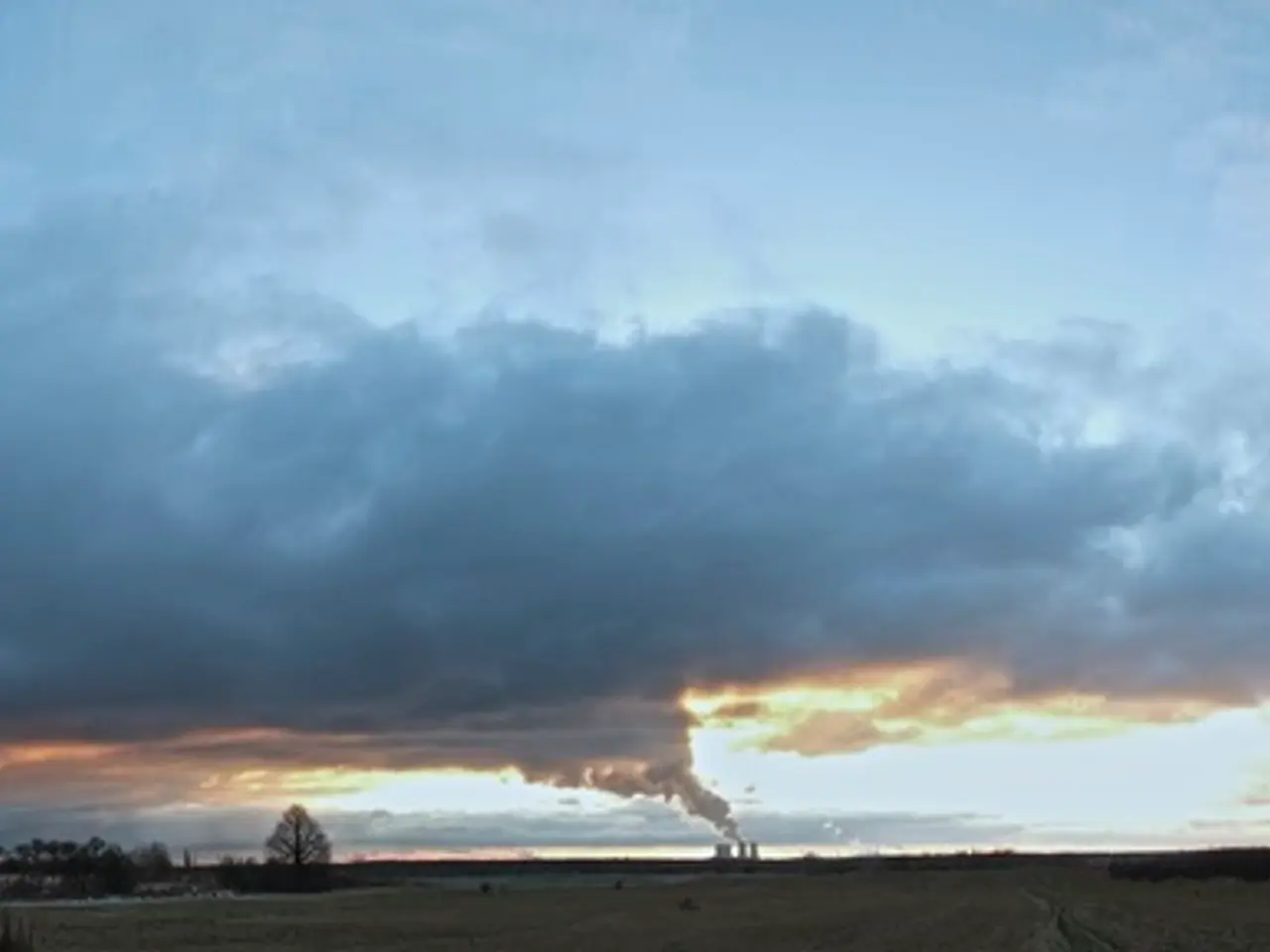Federal Government Contemplates Abolishing Greenhouse Gas Emissions Regulations for Power Stations
The United States Environmental Protection Agency (EPA) has proposed a plan to repeal a series of regulations aimed at reducing greenhouse gas (GHG) emissions and pollution from fossil fuel-based power plants. The move, which is currently under review and open for public comment, has sparked controversy, with sustainability-focused groups criticizing the new proposals as harmful to public health and the environment.
The EPA's proposal hinges on a legal reinterpretation that minimizes the role of fossil fuel plants in air pollution. According to the EPA, GHG emissions from power plants do not contribute significantly to dangerous air pollution within the scope of the underlying regulation. As a result, the EPA claims it lacks legal authority to regulate GHG emissions from these sources under Section 111 of the Clean Air Act (CAA).
The proposed changes include a reinterpretation of Section 111, requiring the EPA to first find a “significant contribution” from fossil fuel plants to air pollution before regulating them, a requirement the EPA now proposes not to find. The proposals also aim to roll back climate regulations by repealing Obama-era and Biden-era emissions standards, including the 2015 New Source Performance Standards and the 2024 Carbon Pollution Standards for power plants.
The EPA's rationale for these changes includes the argument that the contribution of fossil fuel power plants to the broader aggregation of atmospheric GHG emissions is not significant enough within the meaning of the law. The EPA also proposes rescinding the Endangerment Finding on GHGs and the authority to regulate emissions, which were established in 2009, for vehicles and by extension for power plants.
Industry groups like the National Association of Manufacturers (NAM) have applauded the repeal, stating that it is positive for manufacturing and grid reliability. However, NAM has warned that repeal alone is not sufficient and has called for comprehensive permitting reform to allow new and modernized power plants (including those using carbon capture and low-emission technology) to come online faster.
Critics, such as the Clean Air Task Force (CATF), have raised concerns that the repeal will increase GHG emissions and hinder U.S. climate goals. Shaun Goho, legal director at CATF, stated that the standards were put in place for a reason - to fulfill the EPA's legal obligations to protect public health and the environment from harmful pollution using the most up-to-date technical and scientific evidence.
The EPA's proposal to repeal regulations targeted by the agency includes the Biden and Obama-era GHG emissions standards under the Clean Air Act, as well as the 2024 Mercury and Air Toxics Standards' (MATS) mercury and particulate matter standards for coal-fired plants. The EPA is also proposing amendments to MATS in 2024, including more stringent particulate matter emissions and mercury emissions standards for coal plants, and a requirement for continuous monitoring for emissions.
The repeal of these regulations is expected to have significant implications for the U.S.'s efforts to combat climate change and reduce air pollution. The proposals mark the latest in a series of moves by the Trump administration to ease regulations on the fossil fuel energy sector.
- The EPA's proposal to repeal regulations focused on GHG emissions and air pollution from fossil fuel power plants has sparked controversy within the realm of environmental science, as sustainability-focused groups argue that the proposals are detrimental to public health and the environment.
- The ongoing debate surrounding the EPA's proposed changes in policy-and-legislation, which tout a legal reinterpretation to minimize fossil fuel plants' role in air pollution, has become a hot topic in the general-news, with critics raising concerns that the repeal will hinder U.S. climate-change goals.
- The science community, including organizations like the Clean Air Task Force (CATF), emphasizes the importance of GHG regulations, pointing out that they were put in place to fulfill the EPA's legal obligations to protect public health and the environment from harmful pollution based on the most up-to-date technical and scientific evidence.








